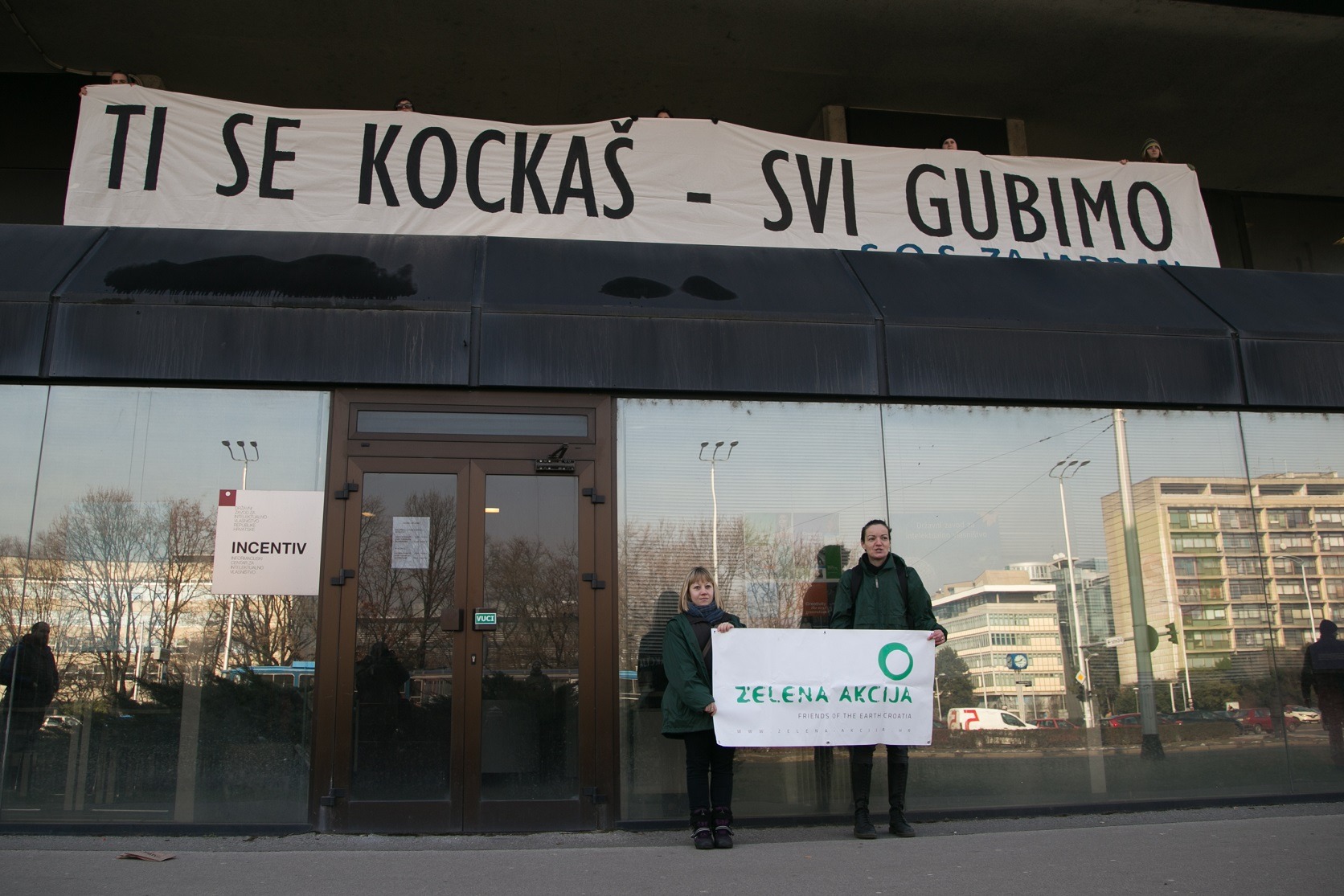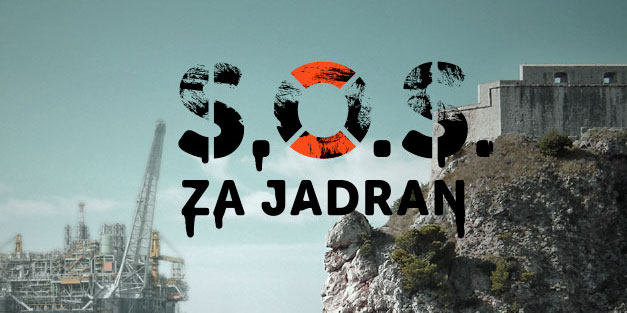With the Croatian government’s recent announcement of their plans to to open up the Adriatic to oil exploration, Zelena akcija/Friends of the Earth Croatia along with a number of other civil society groups this month officially launched a campaign to save the sea around Croatia, Montenegro and Italy from oil drilling.
The S.O.S. Adriatic (S.O.S za Jadran) campaign was launched together with civil society organisations within the national environmental network Green Forum, and in cooperation with Greenpeace Croatia and WWF Adria. The aim of the campaign is to keep the entire Adriatic Sea oil free, not only by stopping the planned activities in Croatia and Montenegro, but also by ending existing oil production on the Italian side of the Adriatic.
Transparency lacking
The Croatian government’s plan to sign harmful contracts with five companies – Austrian OMV, American MarathonOil, the Croatian-Hungarian company INA, the Italian oil and gas company Eni and British Medoilgas – for of oil and gas drilling in ten blocks of the Adriatic is not only environmentally catastrophic, but the process so far has been untransparent and rushed.
The British company Spectrum Geo Limited conducted seismic 2D exploration of the Adriatic sea from September 2013 to January 2014. This was approved by the Croatian Ministry of Science, Education and Sports, claiming it was for scientific purposes (and thus in their jurisdiction), and in a secret contract with the Ministry of Economy without a public tender or a public debate. Furthermore, no Environmental Impact Assessment for the seismic exploration was conducted, and the report on implementation of nature protection requirements during Spectrum’s seismic surveys is still yet to be published.
The five oil companies were awarded concessions on January 2nd 2015 in a closed government session, without any prior public debate or discussion in the Parliament, and before any Environmental Impact Assessment had been published. This assessment, published later in January, has been called into serious question by many experts beyond civil society, including the Institute of Oceanography and Fisheries and local municipalities. The study was branded “completely unacceptable” by Zelena ackija and is a good indicator of the unwillingness Croatian institutions have for serious control over such a risky and aggressive activity.

Increasing public mobilisation and regional cooperation
Zelena akcija’s intention is to include more citizens’ initiatives and CSOs into the campaign, and mobilise the wider public. The campaign has already organised several protest actions throughout the past year in front of relevant ministries and the government – on Friday 13th (February) our activists climbed the Ministry of Economy with a 10 metre long banner reading “you gamble, we all lose”, while simultanous symbolic actions happened around the coast and islands. We used the action to launch a public call for citizens to send comments on the Strategic Environmental Impacts Assessment to the ministries, government, and other relevant institutions and individuals. Using our e-campaign tool, citizens sent 3750 e-mails opposing oil drilling in just four days.
Zelena ackija is using both legal channels and direct actions to prevent the Croatian Government from signing the contracts. Our allies in Italy and Slovenia have succeeded in urging their governments to ask Croatia to be included in cross-border consultations regarding the project. This will most probably delay the whole process. of signing the contracts.
Many institutions and prominent individuals including artists, musicians and actors have already publicly stood against this project. People are starting to wake up and defend the Adriatic Sea – the only source of livelihood for many. This harmful project would prolong Croatia’s dependence on fossil fuels, further deepen the climate crisis, and endanger marine ecosystems – which could threaten those depend on tourism and fisheries for their livelihoods.
Tourism is a very lucrative branch of the Croatian economy which not only employs a large number of people, but also regularly makes about 15% or more of the annual GDP which makes it one of the few stable branches of the country’s economy. In 2003, Croatia exported about $114 million worth of top marine fish. The fisheries sector employs a large number of people all year round, especially in areas which lack major employment opportunities, such as islands and small coastal towns.
There is a long fight ahead with pressure coming both from the government and the mainstream media. But this campaign has the potential to finally shake up Croatia and the Balkans, and get people to stand up to the dirty industry.
For now, you can keep up to date with the campaign by liking S.O.S. Adriatic’s new Facebook page (currently only in Croatian) and visit its website. For more information, contact Maruška Mileta and Luka Tomac.






